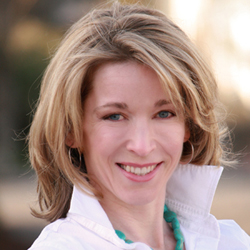Soul Matters – April 2017
We’ve been having an interesting adventure these past few weeks. Having sold our ginormous SUV, we are hunting for a second car. Brand new is not an option, so we’re hunting for a used something. The problem is, all the cars we really like are new, or close to it. In the course of our search I’ve noticed the phrase “second best,” being tossed out quite a lot, as in, “We can’t have what we want so we’ll have to settle for second best.” The phrase began to bother me.
I don’t know about you, but in my experience, “second best” was a phrase of defeat. “Come home with first or don’t come home,” my brother once quipped as I left for a debate tournament. I took those words to heart and have been suffering under them ever since. While there is nothing inherently wrong about doing one’s best or wanting nice things, there is indeed something wrong with feeling that you must be or have the best or you will perceive yourself a failure. Historically for me there was no “second best.” There was first best, or nothing. It’s a tough way to live.
My own, beautiful son taught me an amazing lesson in perspective on this topic. Walking to our car after suffering a particularly bad trouncing in a long series of losses for his baseball team, I cautiously asked him how he felt about the game. His response stunned me. He said, “I feel good about it. I pitched really well,” and he looked at me and smiled. His team was terrible, yet he had done his best and felt great. I have never been more impressed or proud of him than I was in that moment.
My son taught me what “best” is all about: perspective. The notion of “second best” can only exist in a dualistic mindset that insists on constant comparisons to others, to the past, or to an idealized fantasy of perfection. Thinking about this notion of “second best” in choosing a car a strange and rather exciting idea arose: What if there’s no such thing as second best?
At any given moment, in any given situation, we are always doing our best with what we have, what we know and who we are. Discontent rears its ugly head only when I compare myself to another, or to a desire that I have decided is the sine qua non of my existence. Whatever car we have will be the best, given our reality. It’s only second best if I continue to hold a belief that it could be otherwise, when obviously it can’t be otherwise or else it would be. This is a logical truth.
There’s more to it, however. Beyond the logical there is a spiritual dimension at play.
Limitations—be they of resources, health or other circumstances beyond our control—can be seen not just as obstacles that must be accepted but as meaningful and necessary parameters that guide our unfoldment. The poet David Whyte once said: “…anything real that presents itself to us is not a barrier, but a necessary next step.” In other words, I can see my inability to have the car of my dreams as a mark of failure and be frustrated, or I could see it as meaningful. What if not having what I think I want is precisely what my soul needs for its growth and development? What if I fully, confidently believed that my life’s circumstances were channeling me toward becoming my very best self?
We are all on our perfect trajectory, having the experiences and challenges and opportunities to grow into the fullness of our divine, essential natures. It’s difficult to see this trajectory, caught up as we are in our human existence and tripped-up at every turn by our frightened and frantic egos. But every now and then, a little awareness breaks through reminding us that it’s not what we have but how we view our lives that matters, and in those moments we see that it is, indeed, all good.
KATE INGRAM, MA, is an award-winning author, counselor and life coach helping people navigate loss, grief and major life transitions to discover their BEST life. Find out more at katherineingram.com.

 KATE INGRAM, M.A., is a counselor, soul coach and author. Her first book, Washing the Bones: A Memoir of Love, Loss, and Transformation about her journey through grief and depression to spiritual awakening, was awarded a 2014 Nautilus Silver Medal and a 2014 Indie Book Award. To receive free monthly inspiration or to find out more about her work, please visit
KATE INGRAM, M.A., is a counselor, soul coach and author. Her first book, Washing the Bones: A Memoir of Love, Loss, and Transformation about her journey through grief and depression to spiritual awakening, was awarded a 2014 Nautilus Silver Medal and a 2014 Indie Book Award. To receive free monthly inspiration or to find out more about her work, please visit